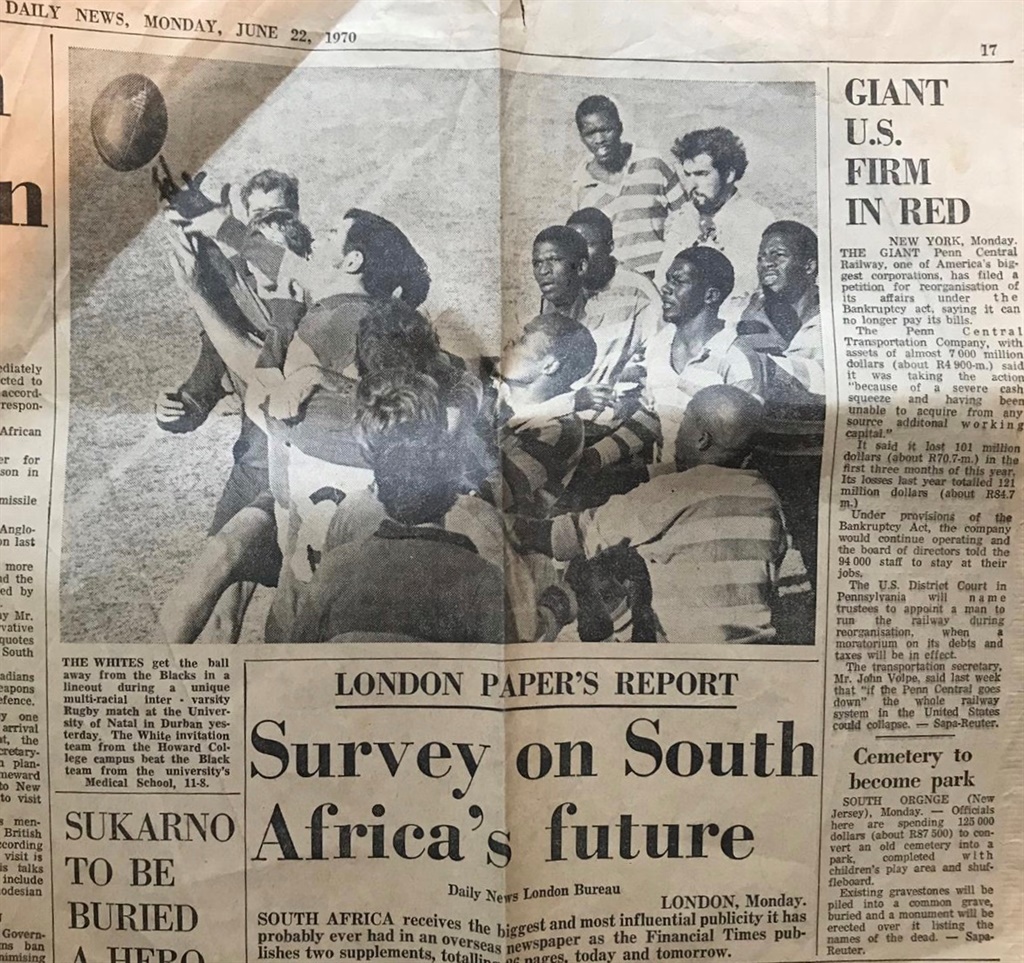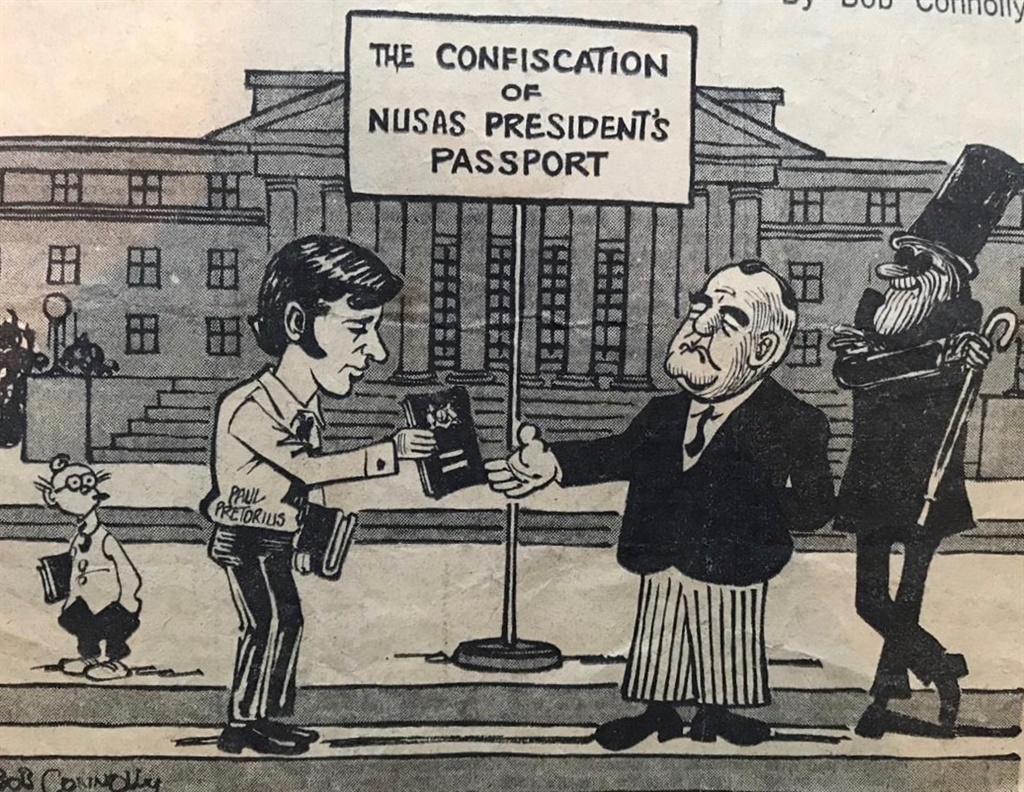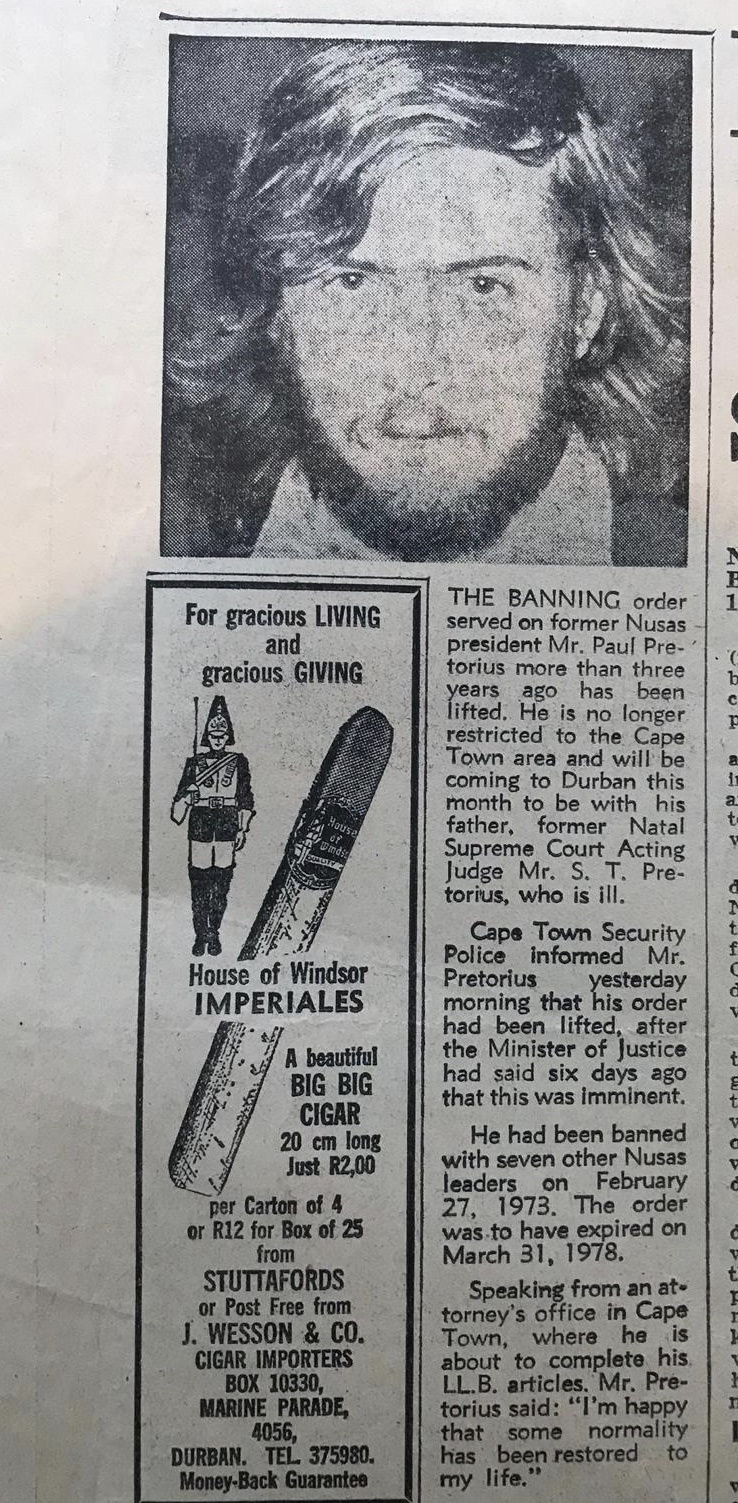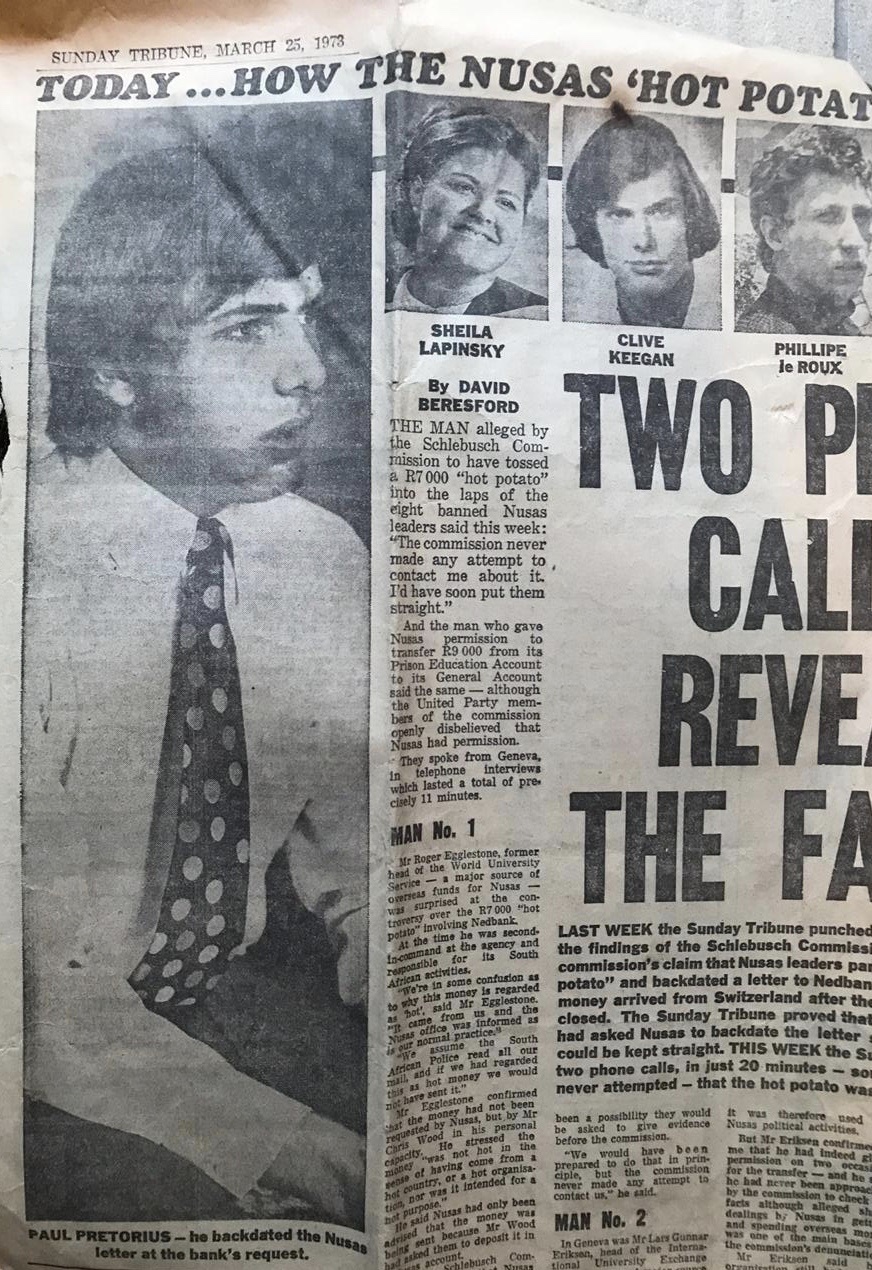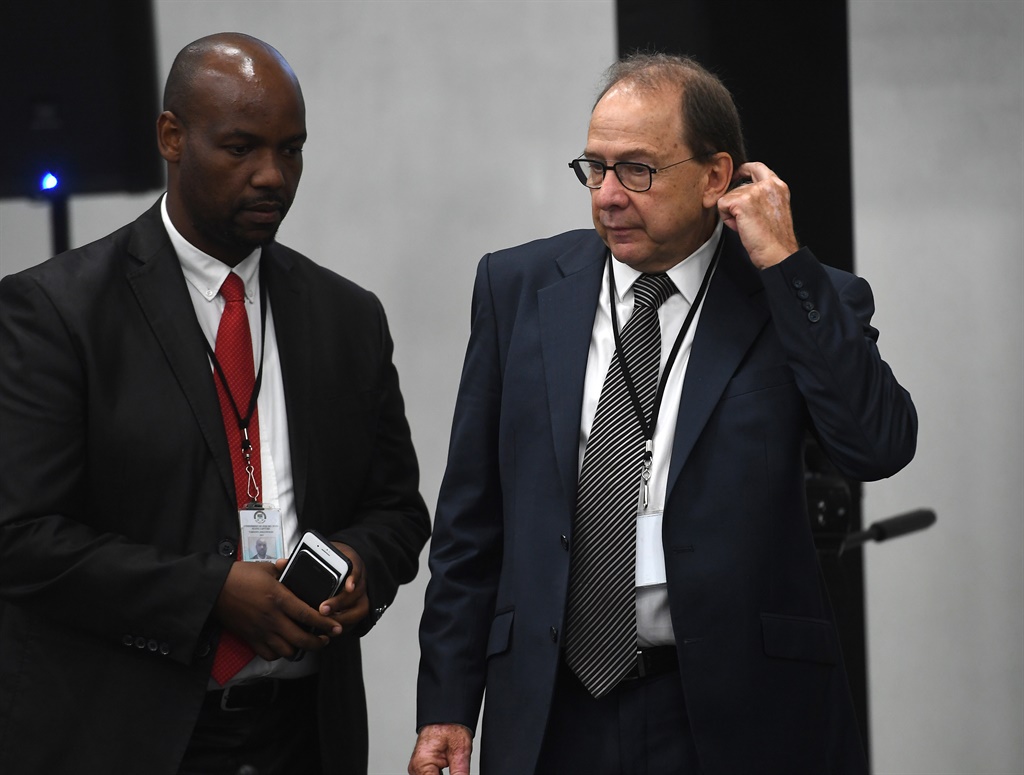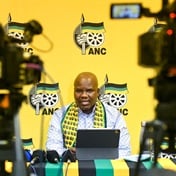The tone of his voice rarely fluctuating, advocate Paul Pretorius has spent much of the past year navigating South Africa through the treacherous maze of state capture. He has done so with measure, control and a stern hand. He has been a cicerone, guiding us into the crevices and corners where the most astonishing corruption lurks, into the cul-de-sac of Gavin Watson's Monopoly money cash safe and leading us through the clandestine backroom exchanges, illuminating how the Guptaleaks came to light.
As the landmines exploding at the Tiso Blackstar offices in Braamfontein ripple across the country, it is his deferential approach, his slow and measured movements, that brings a sense of calm to the proceedings. He has joined the dots of complex graft, pointing out the signposts of collusion and compromise along the way, stressing the seriousness of the situation, but without ever sounding the alarm.
It makes the 69-year-old's selection as evidence leader and head of the legal team an inspired one by Deputy Chief Justice Ray Zondo. It's as if Zondo knew we would need a steady hand to hold the fragility together when the skeletons began tumbling out.
SA's Robert Mueller
Those who know him best say he doesn't see himself as a charismatic corruption buster. He is reluctant to stick his head out above the parapet or elevate himself above his team, although he has allegedly faced some dissent from within his ranks. Pretorius subscribes to an ethos reminiscent of that of US special counsel and Trump investigator Robert Mueller, the master of silence. As Mueller speaks through his indictments, Pretorius is speaking vicariously through his witnesses' testimony. (For the record, he declined a request to be interviewed for this article because he is restricted by bar council rules.)
"He's a very astute fellow, very moral. He's not dynamic and he's not terribly charismatic but you couldn't have higher integrity. I wasn't surprised at all that he was made evidence leader. It made perfect sense," a senior counsel tells me about his long-time associate. Pretorius is held in the highest regard by his colleagues at the bar as a "true gentleman".
But beyond the composure, the temperament and the intellectualising round spectacles, is a complex, layered history peppered with surprising nuggets - from banning orders, to rugby games with Steve Biko, more than one marriage, a brief sojourn as a record store owner, sinister threats, a quirky, sandpaper dry sense of humour and even a gold Cannes Lion.
An Anglicised Afrikaner
Paul Pretorius' father gave his male children two choices, engineering or law, and he chose the latter. It wasn't surprising, as his father too was in the profession. He was an advocate practicing in Durban and had served in World War 2 as a judge advocate, presiding over court-martials in North Africa.
Pretorius grew up in a white family in a white suburb and attended a school that was white in name at the height of apartheid. He was an Afrikaner in Durban at a time when Afrikaners were in the minority and there were only a handful of Afrikaans schools there. But his family were not nationalists and his parents evidently thought it better that he attend an English school, and so he was enrolled at Marist Brothers in Natal which was run by a Catholic order of Brothers.
"My parents followed the social norms in Durban which were largely English, although my parents were Afrikaans. So any liberal influence would have come from my schooling. I recall sort of anti-government sentiments, although I'm not quite sure where they came from," Pretorius said in a 2007 oral history project interview.
When he finished school he went to the South African Navy Gymnasium where, if it moved, he saluted it and, if it stood still, he polished it.But it was at the University of Natal the following year where he experienced his first political activism. He quickly noticed that there were different sorts of moral parameters.
Pretorius was recruited into the SRC, largely for the rugby playing lobby he brought with him. (I'm told he played hooker in the days that hookers had to hook, but he was too light for the position). Despite photos of him from that era depicting a shaggy haired, good looking jock, he was never a stereotypical long-haired liberal student activist.
He did become the SRC president and found himself more and more politically active, joining Nusas, the National Union of South African Students and later also becoming president of this organisation. Nusas was founded in 1942 and was a liberal left-leaning student union whose members subscribed to non-racialism and non-sexism. However, he never joined a political party or ever carried a party card. It was not in his nature to subject himself to a discipline imposed on him by others. It made him feel too restless.
Playing rugby with Biko
While he was SRC president at the University of Natal, the Black Consciousness Movement and the South African Students Organisationwere born just a few kilometers away at the University of Natal Medical School. It was here that Pretorius came into contact with Steve Biko and other student leaders. He recounts how at a conference in the late 1960s, where Biko came to announce his departure from Nusas and the formation of SASO and the BCM, Pretorius supported him against a more liberal leaning grouping which was resistant to racially separate organisations. SASO advocated a black identity, not the multi-racialism supported by Nusas, of which Pretorius later became president.
When he was a student at the University of Natal, Paul Pretorius organised an interracial rugby match between white and black students. Pretorius played hooker; Steve Biko is the player right at the back, at the top of the photograph.
When Biko left the conference, after the resolution had been passed, he gave Pretorius a note and he said, "Thank you, Paul for your support", and walked out. The two also organised a rugby match between the campus on the hill and the campus down in the valley which the police and politicians took an active interest in. Pretorius was criticised and condemned for this.
In 1973, Pretorius was banned by the government of hardline premier John Vorster. The government appointed the Schlebusch Commission to investigate Nusas and other organisations. It laid the groundwork for a clamp down on these groupings and their members, and eight leaders from Nusas were banned in terms of the Suppression of Communism Act of 1950. Pretorius sent his banning order back in an act of protest. Ironically, after he was banned, he read his first Marxist book and used the time to catch up on leftist literature.
At the time, he was in Cape Town working full time for Nusas, having pushed pause on his law degreeand the result was that he was confined to the Cape Town city area. To maintain contact with students at UCT, he opened up a record bar in Rondebosch which he cheekily called "Cold Storage", while the government kept him on ice.
Pretorius finished his law degree via correspondence and returned to Durban to care for his sick father. He began to practice law, doing work mostly for the trade union movement.
Working with Chaskalson, Kentridge and apartheid dirty tricks
But in 1981, Pretorius' legal career took a deviation towards public interest law as he spent several formative years at the Legal Resources Centre in Johannesburg, in the company of legal luminaries like Arthur Chaskalson and Sydney Kentridge. It was during this time, working alongside Charles Nupen and Geoff Budlender, that he dealt with some trials that were "horrific and tension-filled". It was also during this period that several incidents occurred that led him to feel fearful for his personal security.
A newspaper cartoon showing Paul Pretorius handing over his passport to apartheid premier John Vorster. Pretorius was banned by Vorster in the early 1970s.
While on holiday in the Cape with his then wife and kids, Pretorius, a keen marathon runner, went for an early morning run and when he returned saw a couple kissing next to a big American car. Later that morning, he took the kids for a drive from Hermanus to Gansbaai and, while they were deciding whether to stop in Stanford for coffee, he geared his Jetta down. But when he pumped the brakes with his foot, there were no brakes.
He pulled into a nearby garage and his son Sam, who endearingly refers to his father as "Paulie", said "Paulie, the bonnet is bubbling". The family watched from the pavement as the Jetta went up in flames. Pretorius subsequently discovered that the brake fluid had been tampered with. Another time, he was driving in Brixton in Johannesburg when his wheel axle clean fell off his car. It had apparently been fiddled with too.
In his oral history interview, Pretorius plays down these suspicious incidents and rather contemplates how the apartheid government successfully put on a show of being a benign state, which was both supported and exploited, but at the same time was cruel and oppressive. He references one of his favourite authors JM Coetzee's description in Waiting for the Barbarians of the benign magistrate and the brutal colonel who both prop up the same regime: "I was the lie that the empire tells itself when times are easy, he, the truth that the empire tells when harsh winds blow."
State capture and being called a 'bastard' by Malema
As evidence leader at the state capture inquiry, Pretorius must be aware that the job he is currently doing could again be placing him and his family under the personal threat which he experienced during the 1980sIt also didn't help when EFF leader Julius Malema took to a podium outside the commission and called him a "bastard" for not aggressively cross-examining Pravin Gordhan. Apparently, Pretorius didn't take the abuse all that personally as he understood the politics at play and bearing in mind that his is an inquisitorial role, not an adversarial one.
There's a reason this lawyer collects bonsai trees.
A rarity amongst senior counsel at the bar, Pretorius is without all-consuming ego. His old friend and colleague, anti-apartheid lawyer Peter Harris, who credits Pretorius with igniting his political consciousness and setting him on the path of student activism, describes him as "understated".
Paul Pretorius was banned by the government of John Vorster in the early 1970s. He was one of a group of "undesirable" student leaders from Nusas, the left-leaning students' organisation established to voice resistance against apartheid.
"He has a formidable intellect and is an exceptionally meticulous and thorough lawyer. He's very quiet and is not a flamboyant, ego driven lawyer, but he more than gets the job done. He's a listener rather than a talker, which is a bit odd for a counsel," jokes Harris. "If he does anything, he does it well. The first time he ran the Comrades, he got a silver, which is pretty exceptional."
Without fail, Pretorius' colleagues and friends revere him for his integrity and credibility. But not all men can be without "smallanyana skeletons". In this man's case, it would seem these lurk in the cupboards of his personal life, where he is fallible, rather than in the professional realm. He has been married more than once and has three children.
There's another fabulous tidbit of trivia to share here. Do you remember the 1998 Reach for A Dream advert with the shy, hesitant St John's boy who returns to school after fighting leukemia? The one where all the kids have shaved their heads in solidarity and take off their beanies as he walks in? That leukemia survivor is Sam Pretorius, Paul's son. He now lives in Australia, healthy and teaching. The ad won a Gold Lion at Cannes. Pretorius keeps the Lion as a reminder of Sam's bravery in beating leukemia.
Why Zondo chose him
During his career as an advocate, Pretorius has earned a reputation as a peacemaker, intent on seeking resolution rather than sewing division. He edited a book on dispute resolution and was keenly involved in the Independent Mediation Service of South Africa (IMSSA), a non-profit organisation offering mediation and arbitration services.
Don't be mistaken though, he's not all pacifist. I've heard him be described in counsels' chambers as one of the finest cross examiners at the bar.
"He's not a pit bull in the sense of a criminal lawyer, but he's extremely effective," said one colleague. "He's not antagonistic and not vociferous, but if he disagrees with you, he will be at the forefront of the criticism," said another. A glimpse of that instinct and his unwavering commitment to social justice was on show this week as he confronted ex-Bosasa COO Angelo Agrizzi about his revolting racist rant recording.
There have been moments during the commission that Pretorius has had to temper himself as he has reigned in difficult witnesses, particularly Agrizzi. But throughout he has remained deferential to Zondo, respecting the chair. That is probably because the two go back a long way. Their paths crossed when they were both working at IMSSA as dispute resolution specialists. It's probably why Zondo called Pretorius to put his name forward for the job of evidence leader, a position which those close to Pretorius say he feels fortunate and privileged to have been entrusted with. He understands the gravity of this work.
As the face of the state capture commission, Paul Pretorius is doing a job on behalf of the country. He meticulously walks each one down a very deliberate, carefully thought out path. He takes us all along on the difficult journey of understanding just how deeply our country has been compromised and captured. It is his job, on behalf of us all, to coax, to lure and to extract the truth from each witness so that we fully comprehend how cheaply South Africa was sold.
It is a lifetime's work culminating in this: choreographing the catharsis.




 Publications
Publications
 Partners
Partners




